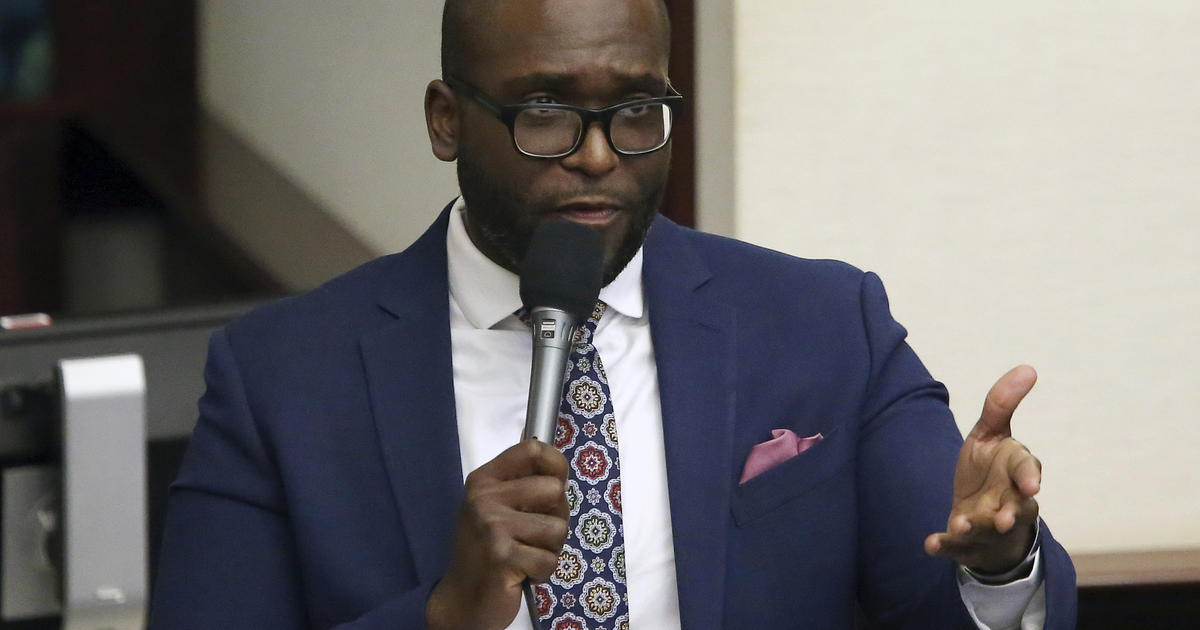Judge Hammers Florida Medicaid On Care For Kids
Follow CBSMIAMI.COM: Facebook | Twitter
TALLAHASSEE (CBSMiami/NSF)-- After a long legal battle, a federal judge found various problems in Florida's Medicaid program and how it provided health care to kids in the state.
Judge Adalberto Jordan, in a 153-page decision, said Florida's history of low reimbursement payments to doctors led to a lack of access to care for many children in Medicaid. He also pointed to problems with issues such as children being improperly terminated from the program, inadequate efforts to sign up children for coverage and a lack of available dental care.
"In discharging its responsibility to set physician reimbursement rates, AHCA (the state Agency for Health Care Administration) does not consider whether the reimbursement rates are sufficient to ensure that children on Medicaid have access to health care services equal to that of other children in the general population,'' Jordan wrote.
Jordan, who is now a judge on the 11th U.S. Circuit Court of Appeals but heard much of the case while serving as a district judge in Miami, found that Florida did not comply with parts of federal Medicaid law. In doing so, he agreed with many of the arguments of the Florida Chapter of the American Academy of Pediatrics, which along with other plaintiffs, filed the case in 2005.
"It's a great day for the children of Florida,'' said Tallahassee physician Louis St. Petery, executive vice president of the group.
Jordan wrote that another phase of the case will determine what remedies should apply. A potential wildcard, however, involves the state's arguments that many issues in the long-running case are now moot. Those arguments stem from massive changes that have led to almost all Medicaid beneficiaries enrolling in HMOs or other types of managed-care plans during the past year.
"The judge's outdated observations pertain to a Medicaid program that no longer exists,'' AHCA said in a prepared statement Wednesday afternoon. "Florida's new statewide Medicaid managed care … program is cost-effective and a working success."
In October, state attorneys filed court documents arguing that managed-care plans are required to have adequate networks of physicians and other types of service providers.
"Since the trial there have been a multitude of significant changes to the Florida Medicaid service delivery system that affect the issues in this case, and that render the existing record on liability stale,'' the state attorneys wrote.
Jordan rejected a state attempt in October to introduce new evidence into the case. But in this week's decision, he noted that he will schedule a hearing in late January that will include discussing "further briefing on mootness."
The trial in the case finished in 2012, and Jordan's ruling cites extensive testimony and evidence about the Medicaid program dating back several years.
Perhaps the highest-profile issue in the case has been Medicaid's low reimbursement rates, which have led to many physicians and dentists declining to take part in the program. Citing 2008 data, for example, Jordan wrote that Medicaid rates for children's primary-care services were about 40 percent less than rates for comparable services in the Medicare program.
"Expert testimony at trial competently supported the proposition that the Florida Medicaid reimbursement levels are not sufficient for Florida Medicaid to be a competitive purchaser for medical services,'' he wrote.
Jordan echoed longstanding physician concerns that Medicaid patients have problems getting treatment from specialists.
"Children on Medicaid have to travel to other areas of the state and/or wait for several months to obtain care,'' he wrote. "While there are certain specialists and certain locations where issues of access ---- and reasonably prompt access --- may not be a problem, the evidence presented leads me to fin that the issue extends throughout the state and across many specialty types."
Jordan also wrote that in fiscal year 2007, only 21 percent of children in Medicaid were receiving dental care, tying Florida for the lowest utilization rate in the nation. He added that fiscal 2007 "was not an aberration."
"Dental care is especially important for children on Medicaid because low-income children are at substantially higher risk for dental disease, and primary tooth decay, and have higher levels of untreated dental disease,'' Jordan wrote.
The ruling delved into numerous other issues about the way Florida has provided health services to low-income children. As examples, Jordan wrote that children had been improperly terminated from the program and that the state had reduced efforts to get children covered.
As an example, he took issue with a 2003 elimination of an outreach program and a move between 2004 and 2006 to an online application system. He said a 2007 analysis showed problems with people completing applications and that getting assistance was difficult.
"These changes, accompanied by cuts in personnel, were enacted not because they were viewed as improvements but rather due to budget cuts,'' Jordan wrote.
(The News Service of Florida's Jim Saunders contributed to this report.)
RELATED CONTENT:



